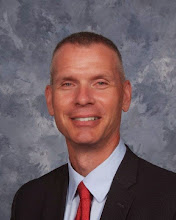I can remember watching Michael Jordan playing basketball on television and thinking, “Wow, he is so much more gifted then the other players on the floor”. Watching him soar through the air, steal passes, and score at will on people attempting to defend him led to my opinion of his giftedness. There is no doubt that Michael Jordan has talent, but the “back story” is also important for our discussion of intelligence and giftedness.
Michael Jordan was famously cut from his high school varsity basketball team as a sophomore. He simply was not good enough to make the team. In other words, he did not have the “natural ability” to make the team. What is important for his own personal story is that he made a vow to himself that he would never not be good enough to make a basketball team for the rest of his life. He began to practice relentlessly for hours at a time. When he became the best player in the NBA he would spend summers working for hours on a part of his game that he thought he needed to improve. He obviously met his goal of not worrying about being cut from a team again, but what does this story tell us of our work with children in the school system?
Recent research, as laid out in Daniel Pink’s Drive, Malcolm Gladwel’s Ouliers, and David Shenk’s The Genius in All of Us, makes it clear that there is one mitigating factor that leads to success in any area. I am talking about success as measured by musical, athletic, academic, social or any other measure. Yes, there is some influence in your natural aptitude for a task, but the far greater influence is the amount of practice that you put into a task. All three authors discuss the 10,000 hour rule. 10,000 hours is how long it takes someone to practice a task before they can become an “expert” or world class. As neurologist Daniel Levitin states in Outliers, “The emerging picture from such studies is that ten thousand hours of practice is required to achieve the level of mastery associated with being a world class expert…But no one has yet found a case in which true world class expertise was accomplished in less time” (p.40). Whether it be a rock band (The Beatles), a computer wizard (Bill Gates , Paul Allen), or music (Mozart) all of these people were not naturally gifted and had to work hard for thousands of hours to reach their level of “genius”. They simply worked and practiced for years upon years. Although the dominant belief in society is that there are some people who are just “gifted’ and that the rest of us can never reach a level of “genius”, that simply is not true.
What does this mean for education? First, educational systems cannot lower expectations for students. All students can learn…period. Please read about Marva Collins and Erin Gruwell and what they accomplished with students that supposedly could not learn. Their stories show the power of expectations and practice. Secondly, although a school system cannot provide the 10,000 hours necessary for world class expertise, the school system can encourage students to be resilient in the face of failures as they start on the road to find their own expertise. Thomas Edison famously failed thousands of times before he and his team developed the light bulb. Schools must help students realize that failure is just a learning experience for your next attempt. As Michael Jordan and all other “geniuses” know, practice and hard work are vastly more important than inherited “genius”.
Subscribe to:
Post Comments (Atom)



No comments:
Post a Comment